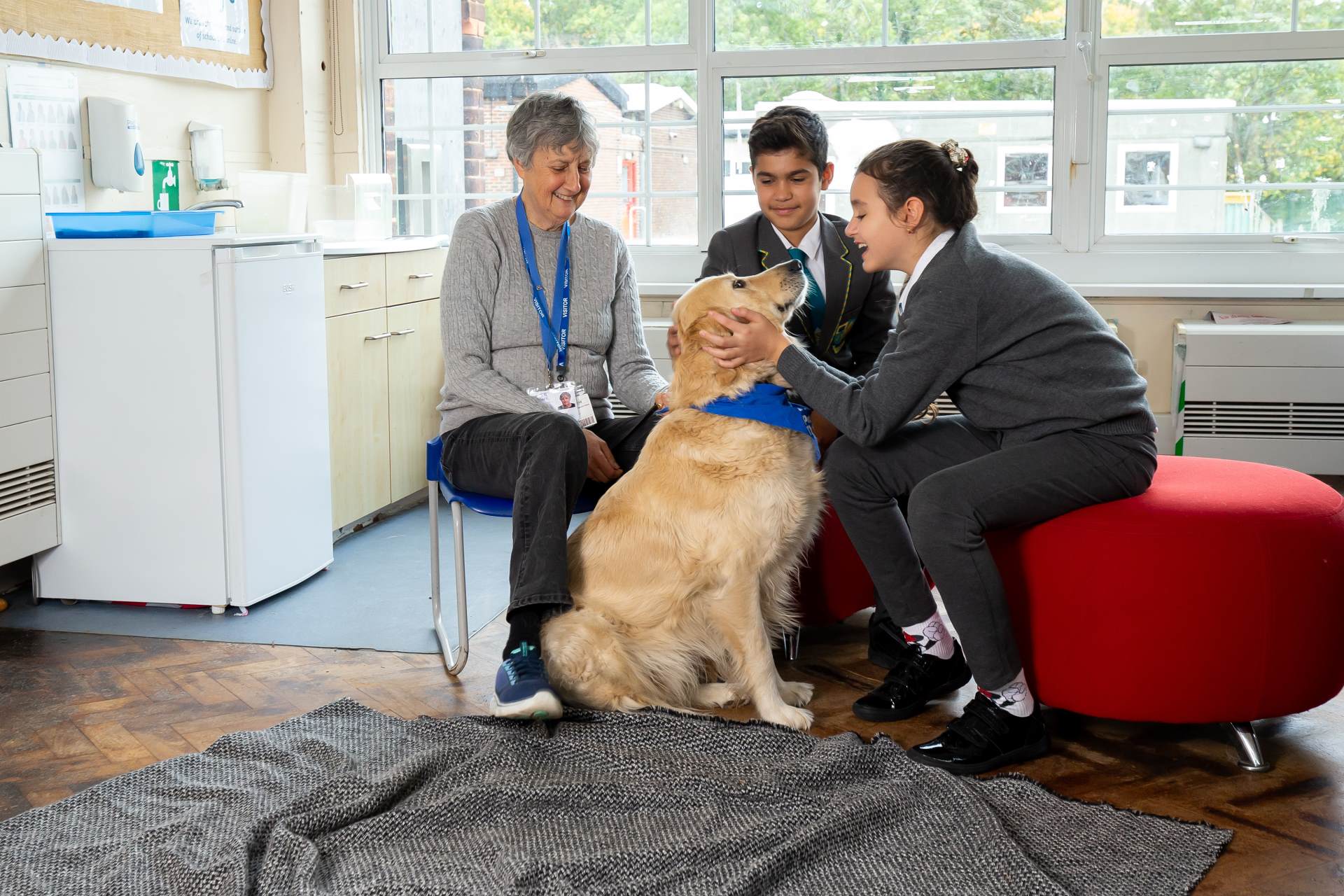Mental health & well-being
We encourage everyone to deepen their focus on health and well-being which, in turn, supports attainment, achievement and happiness of the pupils, but also of our staff and the wider community.
Sport
One of the ways in which we support well-being across the school is through physical activity. The link between physical activity and positive mental health - in addition to physical health - has long been established and proven.
We offer pupils five playgrounds of remarkable size, where children are free to run around and explore during their regular break time.
We also provide a comprehensive physical activity programme and pupils have at least two hours of directed physical education a week. There is a wide range of after-school fitness clubs (football, athletics, table tennis, tennis and cricket) available, as well as and school competitions and competitive tournaments which opportunities for our pupils to enjoy an active lifestyle.
Our therapy dog: Weaver
We offer children the opportunity to spend time with our therapy dog, which provides children with positive experiences that can help them educationally, developmentally, emotionally and socially.
Interacting with animals has been proven to have a positive impact on children in all areas including self-esteem, behaviour, peer relationships and better engagement skills. These improvements then result in improved academic achievement.

The aim is to enhance the universal provision in our school environment for not only social, emotional and mental health well-being but also cover all aspects of curriculum-based education to improve educational outcomes. Numerous research studies have shown the benefits of dogs in schools and evidence indicates that areas of potential benefit include:
-
Cognitive development – companionship with a dog stimulates memory, problem-solving, game-playing and can improve reading skills.
-
Emotional development – a school dog improves self-esteem, acceptance from others and lifts mood, often provoking laughter and fun. Dogs can also teach compassion and respect for other living things as well as relieving anxiety.
-
Physical development – interaction with a pet reduces blood pressure, provides tactile stimulation, assists with pain management, gives motivation to move/walk and stimulates the senses.
-
Environmental benefits – a dog in a school contributes towards the creation of a home-style environment, with all of the above benefits continuing long after the school day is over.
-
Social benefits – a dog provides a positive mutual topic for discussion, encourages responsibility, wellbeing, developing social skills and focused interaction with others.
We would like to warmly thank the owner of our therapy dog, who volunteers every week in our school.








